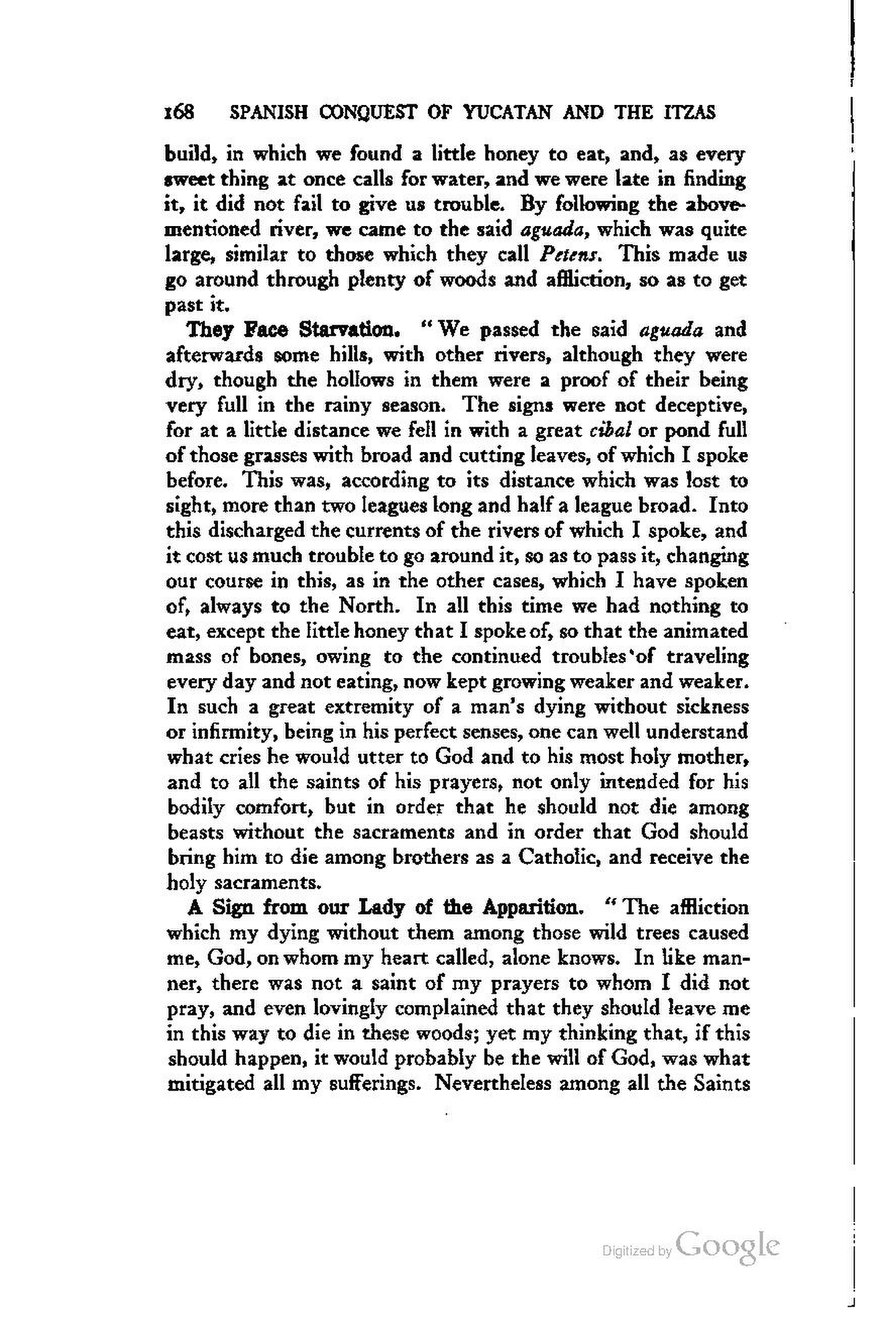build, in which we found a little honey to eat, and, as every sweet thing at once calls for water, and we were late in finding it, it did not fail to give us trouble. By following the above mentioned river, we came to the said aguada, which was quite large, similar to those which they call Petens. This made us go around through plenty of woods and affliction, so as to get past it.
They Face Starvation. "We passed the said aguada and afterwards some hills, with other rivers, although they were dry, though the hollows in them were a proof of their being very full in the rainy season. The signs were not deceptive, for at a little distance we fell in with a great cibal or pond full of those grasses with broad and cutting leaves, of which I spoke before. This was, according to its distance which was lost to sight, more than two leagues long and half a league broad. Into this discharged the currents of the rivers of which I spoke, and it cost us much trouble to go around it, so as to pass it, changing our course in this, as in the other cases, which I have spoken of, always to the North. In all this time we had nothing to eat, except the little honey that I spoke of, so that the animated mass of bones, owing to the continued troubles of traveling every day and not eating, now kept growing weaker and weaker. In such a great extremity of a man's dying without sickness or infirmity, being in his perfect senses, one can well understand what cries he would utter to God and to his most holy mother, and to all the saints of his prayers, not only intended for his bodily comfort, but in order that he should not die among beasts without the sacraments and in order that God should bring him to die among brothers as a Catholic, and receive the holy sacraments.
A Sign from our Lady of the Apparition. "The affliction which my dying without them among those wild trees caused me, God, on whom my heart called, alone knows. In like manner, there was not a saint of my prayers to whom I did not pray, and even lovingly complained that they should leave me in this way to die in these woods; yet my thinking that, if this should happen, it would probably be the will of God, was what mitigated all my sulferings. Nevertheless among all the Saints
